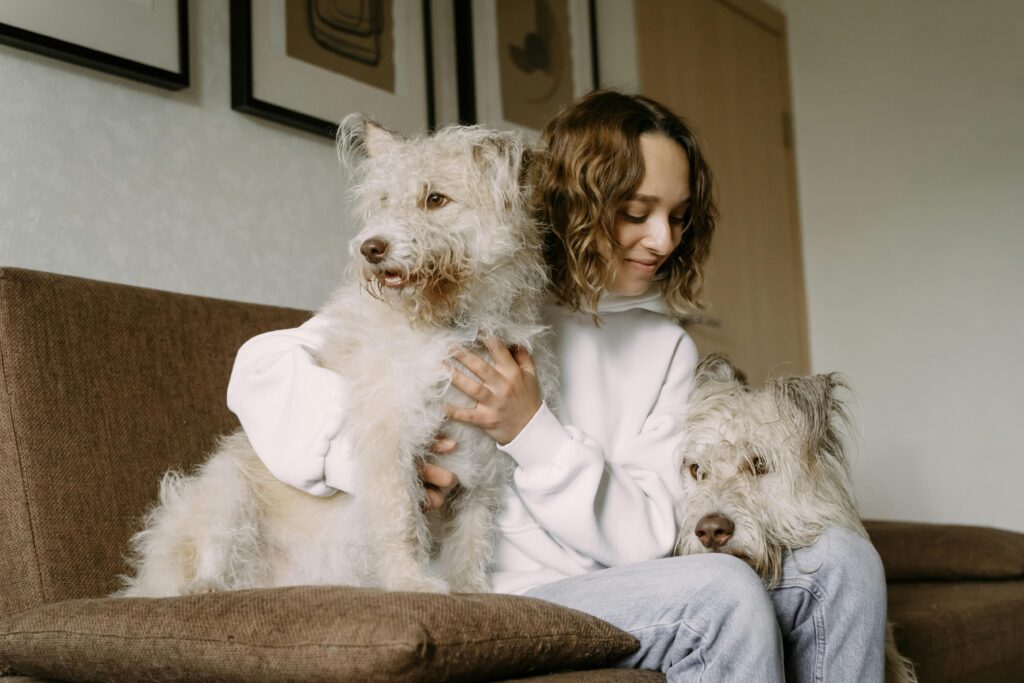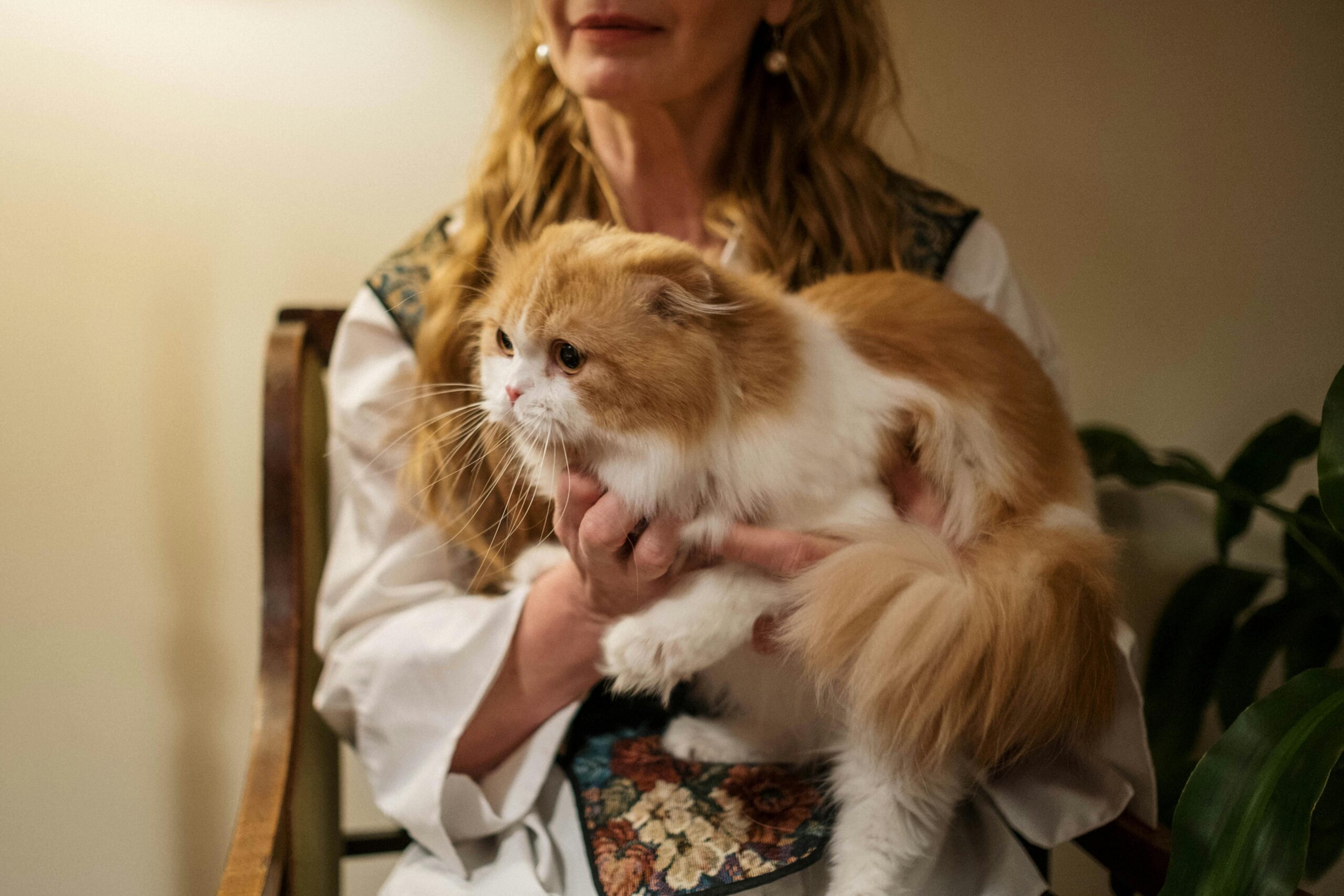One of the most satisfying features of having a pet is developing a relationship with it. Whether your companion animal is a dog, bird, rabbit, or another, developing a relationship grounded in trust, love, and understanding enhances both of your life. Along with improving your pet’s welfare, a strong link makes you happy, comforts you, and connects you as the owner.
Covering basic advice, techniques, and ideas for forging a lifetime bond, this thorough guide on how to develop and deepen your relationship with your pet will help you.

Recognize the nature and needs of your pet.
Every breed and species has different demands, traits, and behaviors. Developing a close relationship starts with investing time to understand the instincts and preferences of your pet.
Dogs, for example, are pack animals that thrive on social interaction; cats are more independent but nonetheless want for company and stimulation.
Notice individual personality:
Every pet has a different attitude even from the same species. Note their preferences, hates, and behaviours.
Meet fundamental needs:
Make sure your pet has access to suitable shelter, fresh water, and nourishing food. Trust is built on a comfortable, safe surroundings.
Spend Time Quality wise Together
Any great relationship is based mostly on time and care. Your bond will grow more robust the more time you spend with your pet.
Daily activities help to strengthen your bond with your parrot, cat, or dog by regular engagement.
Add diversity
To keep your pet interesting and psychologically stimulating, try exploring novel toys, games, or training techniques.
Be in the now
During bonding time, put away distractions like TVs or phones to give your pet whole focus.
Share Successfully
Understanding your pet and developing trust with it depend on good communication. Although animals lack words, they are quite sensitive to nonverbal signals including tone of voice and body language.
Dogs excitedly wag their tails, cats may purr or knead to indicate affection. Identify these signals to react suitable
Plan regular meal times
Feeding your pet at regular times helps them to trust you as a provider.
Plan leisure time and physical activity. Apart from improving your pet’s health, regular physical exercise offers chances for connection.
Maintaining grooming practices:
Regular grooming helps your pet to be comfortable and trusting by brushing their fur or cutting their nails.
Participate and Have Fun
Bonding with your pet is much enhanced by playtime. It stimulates both physically and psychologically and uses their inherent inclinations.
Select toys appropriate for the size and tastes of your pet. Dogs might like chew toys, for instance; cats might like feather wands or laser pointers.
Include instruction into your game. Teaching your pet orders or tricks during playtime builds your relationship by combining enjoyment with knowledge.
Promote active play:
Games like fetch, tug of war, or hide and seek can produce special memories and strengthen your bond.
Empathy and Patience: Practice
Particularly with shy or rescue animals who might have had bad past experiences, developing a bond takes time.
Be patient and let your dog approach you at their own speed. Interference with forcing interaction can erode confidence.
Show empathy, know that prior trauma could be the cause of hesitancy or anxiety. To help someone feel protected, gently reassure them and share good experiences.
Honour the little accomplishments.
Celebrate even little improvements and support them with compliments or incentives.
Participate in Training and Socialising
Along with teaching your pet useful abilities, training promotes mutual respect and teamwork.
Begin with simple orders:
Instruct in basic instructions including “sit,” “stay,” and “come.” Use positive reinforcement to inspire learning.
Early on in socialising:
To help your pet develop its confidence and flexibility, expose it to many settings, people, and other animals.
Make lessons fun.
Short and enjoyable sessions can help you to keep your pet’s excitement by finishing on a good note.
Honor Their Authority
Pets, like people, have limits. Respecting these boundaries demonstrates to your pet your awareness of and respect of their needs.
Give your pet time to unwind if she seems agitated, bored, or tired.
Steer clear of overstimulating some dogs by paying too much play or attention. Find out when you should take breaks.
Approach your pet softly and steer clear of loud noises or unexpected motions that would scare her.
Create Mental Stimulus
Maintaining mental stimulation for your pet helps to avoid boredom and enriches your relationship.
Add puzzle objects:
Great for mental stimulation are interactive toys that deliver goodies or challenge your pet’s ability to solve problems.
Instruct fresh talents:
To keep your pet’s mind busy, routinely teach fresh tricks, instructions, or games.
Take your pet to several parks, paths, or play areas to provide diversity and stimulation of their senses.
Demonstrate Physical Affection
A great approach to show your pet love and foster trust is physical contact.
Investigate Wellness and Health
A content pet is one that is healthy. Dealing with their mental and physical wellness improves your relationship.
Plan consistent veterinarian visits.
Regular visits guarantee the health of your pet and quick resolution of any problems.
Offer a balanced diet:
Customise your pet’s diet for their species, age, and degree of exercise.
Track habit changes:
Behavioural changes that occur suddenly could point to disease or stress. Responding right away tells your pet you care.
Be consistent.
Consistency lets your pet know what to expect of you and fosters trust.
Implement training with follow through. Make sure directives and guidelines are regularly followed among all family members.
Preserve habits:
Follow routines, stay away from abrupt changes that could confuse or irritate your pet.
Show dependability, always satisfy their dietary, hydration, exercise, and affection demands.
Create a Safe Atmosphere
Building trust depends on your pet’s being in a safe and comfortable environment.
Pet proof your house:
Eliminate risks and guarantee a friendly and safe surroundings for your pet.
Establish a personal space:
Create a quiet space your pet can withdraw to unwind.
Reduce demands:
Make less loud noises, strange smells, or chaotic surroundings that can cause your pet to get nervous.
Bring Them Into Your Life.
Including your pet in daily activities helps them to stay cherished members of your family.
Take dogs on visits to the park or pet friendly cafes; other animals might value time outside in a safe carrier or leash.
Exchange your routines and allow your pet to join you for housework, exercise, or leisure time.
Honour benchmarks:
Treats or activities your pet loves will help you honour their birthday, adoption anniversary, or other significant event.
Pay Attention to Your Own Motivation
Pets are quite perceptive of human feelings and energy. Keeping calm and upbeat will enable your pet to feel connected and safe.
Control tension:
Steer clear of transferring stress or annoyance at your pet. Use bonding time instead to unwind and savour their presence.
Stay patient, keep in mind that developing a relationship is a process and that setbacks are natural.
Honour the road ahead.
Value the times of happiness, laughing, and company that accompany pet ownership.
Increasing the Bond Over Time
Your pet’s relationship with you is dynamic, it changes with time. Your pet’s requirements and preferences could alter as it grows. so, keeping aware of these changes will help you to deepen your relationship.
Change with the Times
Pets experience several phases of life, from energetic young animals to peaceful elderly ones, much as people do. Knowing these phases helps you to give the required companionship and care.
Puppies and kittens are lively and inquisitive young creatures who need lots of playtime, socializing, and training to grow into good behavior.
Adult pets may grow more self sufficient or follow routines, appreciating both active involvement and quiet times with you.
Older animals may require more rest and particular treatment for health issues. During this period, gentle interaction and regular affection are quite important.
Design Common Experiences
Shared memories and trust help to strengthen your relationship with your pet.
If your pet loves vacation, look at pet-friendly locations including beaches, hiking paths, or campsites. Attend community activities where pets are welcome, agility courses, or training seminars.
Track the voyage:
To treasure as keepsakes, film and picture of your times together.
Solve Behavioural Problems pleasantly
Pets often show bad habits include frequent barking, scratching, or chewing. Dealing with these events wisely will help you to grow closer.
Find the reason:
Behavioural disorders typically result from unfulfilled needs including health concerns, worry, or boredom.
Use positive corrections.
Steer clear of punishment since it erases confidence. Rather, channel your pet’s enthusiasm or use rewards to inspire positive behaviour
See a veterinarian or animal behaviourist if needed for direction.
Use mindfulness in interactions.
Interacting with your pet helps you to become really present, so strengthening your relationship.
See how they reply:
Watch how your pet responds to your behaviour and modify if necessary to make them comfortable.
Whether you’re simply sitting together, playing with your pet, or walking your dog, pay attention to the delight of company.
Practice thankfulness:
Recognise how much your pet improves your life to help you to develop a closer respect of your relationship.
Gain confidence gradually.
A solid relationship with your pet rests on trust. Earn their trust mostly by consistency, patience, and kindness.
Respect their emotions:
Rather than pushing engagement if your pet feels scared or uncomfortable, offer them space and reassurance.
Your calm demeanor will assist your pet relax in trying circumstances including travel, vet visits, or thunderstorms.
Show dependability:
Reliability in attending to their requirements creates security.
Conclusion
Ten times the time and effort you spend in knowing, tending to, and interacting with your pet will be rewarded in their loyalty, affection, and special companionship. You will make a lifetime of memories and a friendship quite unique together.
